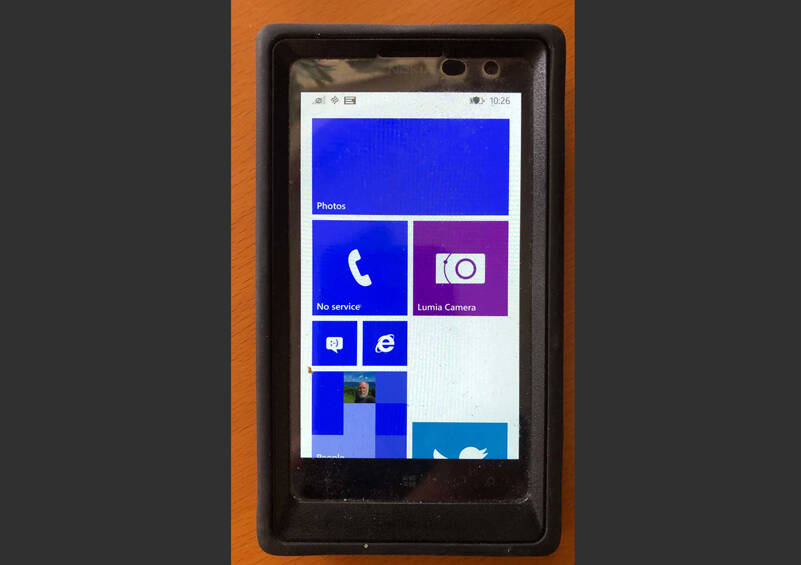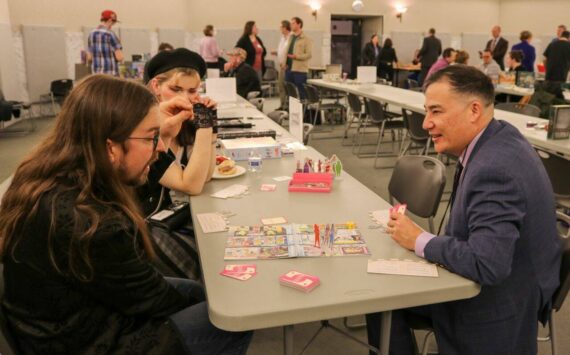By Morf Morford, Tacoma Daily Index
It might be sign that I have hit a certain age, but the things that horrify me most about young people is their inability to DO anything. Yes, they can manage apps and do all kinds of tech contortions few if any could do just a few years ago. But when it comes to managing an independent life, or keeping a budget or preparing food, or washing clothes (or dishes) or even operating standard office machinery (like copiers or scanners) the vast majority of those just entering the workplace are stymied – and horrified – at how little practical knowledge they hold.
There’s even a term for this deer-in-the-headlights frozen panic of meeting grown-up technology – tech shame.
And if you thought being an “old” person asking a child to help you with your smart phone is embarrassing, put yourself in the place of a young adult, new at the job, not knowing how to use a scanner. Or office phone system. You can see more on the dynamics of this dilemma here .
Many of life’s failures are people who did not realize how close they were to success when they gave up. – Thomas A. Edison
My absolutely biased position is that easy apps and AI are making us more boring, less capable, less creative and vastly more helpless and vulnerable than humans have ever been.
AI, for example operates on a very simple premise; it can scour all of human recorded knowledge at blazing speed and then, based on that data, make reasonable conclusion or projections about what is likely to come next. In other words, machine knowledge is vast, fast and stupid. Or at least undiscerning – literally not knowing right from wrong or “good” information from bad.
For better or worse, that is not how human or at least creative humans, function. Humans, do, or reach or envision, the impossible and unlikely. And sometimes the ridiculous. Learning is clumsy, awkward and often embarrassing. We learn from our mistakes – and often make accidental discoveries along the way. And the trajectory of our learning is very much our individual experience of encounters with books, ideas, friends and much more.
But machine intelligence only “knows” what is already known. And what has already been done. And even all of that is filtered through what other machines (or perhaps humans) have made accessible to it.
Humans learn from all kinds of serendipitous encounters and conjunctions of memory, reading and lived experience. Our learning is far more than a screen or printed page. We, at our best and fullest, make leaning our own.
You can see an article on what machine intelligence is doing to us here.
Tech shame 2.0
You might think that bridging that gap between Tik-Tok and the office copy machine is difficult enough, but, as a late-night infomercial might put it, wait, there’s more.
It might feel like some of us are, or should be, surgically attached to our phones (and some say we will soon have that option), as young people in particular know, you don’t just need a phone to be recognized and welcome – it has to be “the right phone”. In more and more circles, social and professional, if it’s not an Apple, it doesn’t register.
It used to be said that “clothes make the man” but in the 2020s, the device makes the person.
The entire smartphone market is essentially evenly divided between Apple – and everyone else.
Even though Apple products tend to cost about three times as much, Apple’s market share increased from 35 percent in 2019 to 50 percent in 2022. Apple products were designed and intended for use within an Apple “eco-system”. And they do.
Consider this; Apple sells 26 iPads, 17 Apple Watches, and 35 pairs of AirPods for every 100 iPhones. In contrast, Samsung sells fewer than 11 tablets, 6 smartwatches, and 6 earbuds for every 100 phones. In short, from the very beginning Apple products have been aspects of a constellation – even a culture – of complementary devices and services.
You are your device
Young people spend an average of six hours a day on their phones and are in public holding them constantly if not obsessively- but they won’t be Androids.
Gen Z (those born between the mid-1990s and 2010 or so) might be considered the most inclusive and diverse generation when it comes to race, religion and gender identity, but not when it comes to phones; Apple is THE phone. And the system is unforgiving – it’s common for Android users to be kicked out of group chats. You can see an exploration of this “shunning” dynamic here.
A previous generation used to say “you are what you eat”, but in the current marketplace, “you are your device”.





